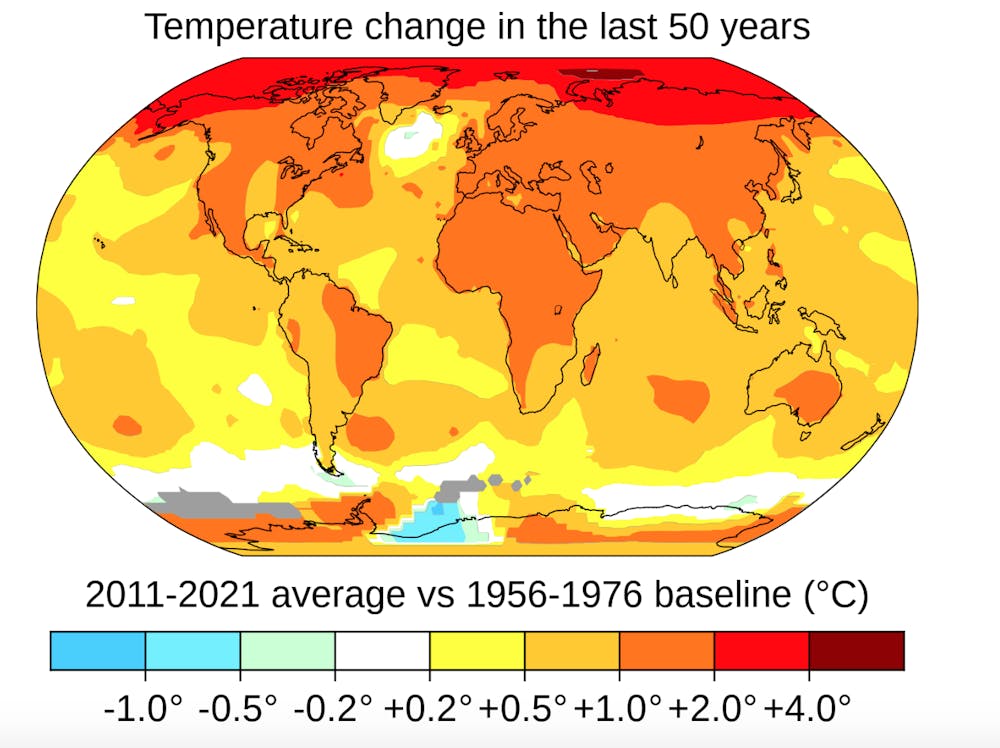By Aneri Upadhyay
Staff Writer
A new report from the Intergovernmental Panel on Climate Change (IPCC) provides more information on concerns, such as global warming, gas emissions and financial aid to countries in need. This new report serves not only as a commentary for the present, but also as a warning for the future.
The IPCC’s report is written by a group of scientists and gets approved by almost 200 officials from different countries around the world before publication, according to AP News. The reason nations have to approve the document is so that it can be used as “authoritative advice” for the governments of those countries.
One important issue discussed in the report was what constitutes a developing country. The reason behind this is that the last United Nations climate talk agreed on a “loss and damage” fund to give cash to countries in need in order to rebuild buildings and avoid debt after climate tragedies.
As stated by NPR, developing countries are heavily affected by climate change, and those are the same countries that contribute the least to it. The report stated that, “between 2010 and 2020, human mortality from floods, droughts and storms was 15 times higher in highly vulnerable regions, compared to regions with very low vulnerability.” Developing countries are thus the most likely to benefit from the loss and damage fund as they are the most affected by climate disasters and the most in need of funds to aid recovery.
Another concern the report discussed was global warming. As reported by TIME, the new report revealed that the planet is expected to warm 2.7 degrees Fahrenheit by the 2030s. This puts Earth at greater risk for heat waves and flooding. The IPCC is also concerned with sea levels rising and ice at the Arctic Pole melting, along with extreme weather conditions, such as floods, droughts and hurricanes.
Scientists are hopeful, however, that there is still time to prevent this from happening.
One of the IPCC report authors, Friederike Otto, stated that, “We actually have all the knowledge we need. All the tools we need. We just need to implement it.”
One way this can be done is by increasing the use of solar panels, which have become 85% cheaper than in 2010 as reported by TIME. China is slated to increase solar capacity this year.
The IPCC also supports the use of photosynthesis to reduce carbon concentrations in the atmosphere. By improving how land is taken care of and protecting ecosystems, there will be a reduction in greenhouse gas emissions and the climate will be closer to stabilization. Even planting more trees can provide shade for crops.
If change is going to happen, it needs to start soon. United Nations Secretary General Antonio Guterres is asking nations with the ability to do so to cut greenhouse gas emissions.
“The rate of temperature rise in the last half century is the highest in 2,000 years,” he stated, according to Reuters. “Concentrations of carbon dioxide are at their highest in at least 2 million years. The climate time-bomb is ticking.”
There are even opportunities to help the environment right here on the College’s campus. There is an Environmental Club that holds events such as canal, campus and beach cleanups. The club meets in SSB 130 every other Wednesday. For more information, their Instagram is @tcnjenvironmentalclub.







